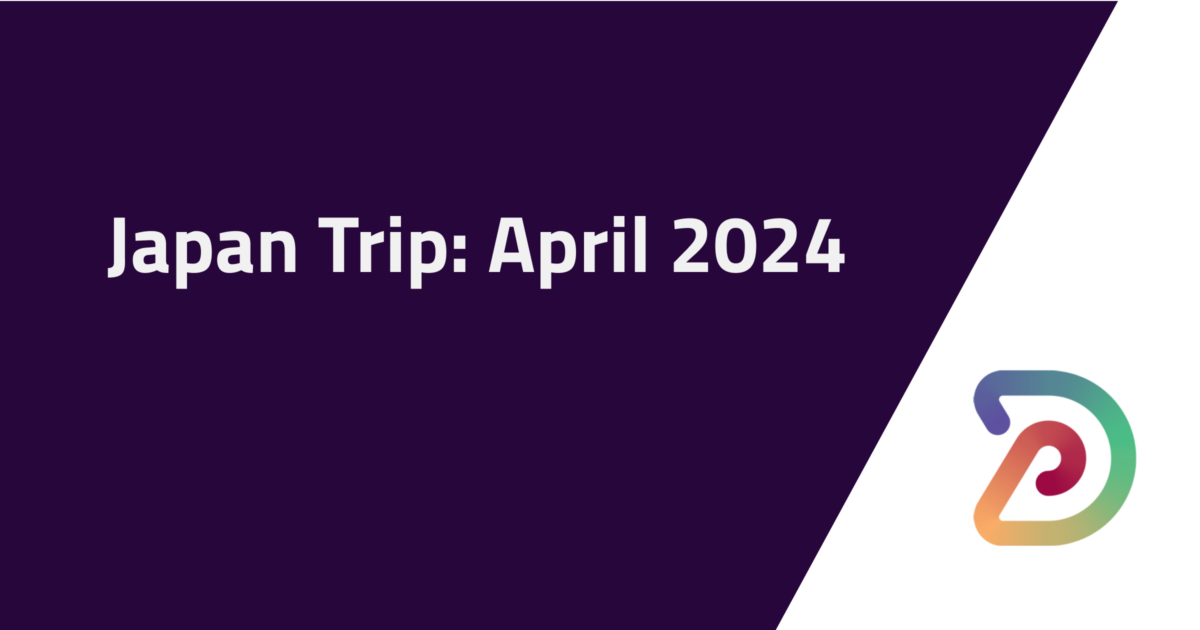I’ve just returned home the UK, wrapping up another successful journey to brightonSEO, which will write about in my next post.
April has been a very busy month overall, however, because two weeks before going to England, I was in Japan for my quarterly trip there. We have many great customers and partners in Japan so I make an effort to visit as often as possible.
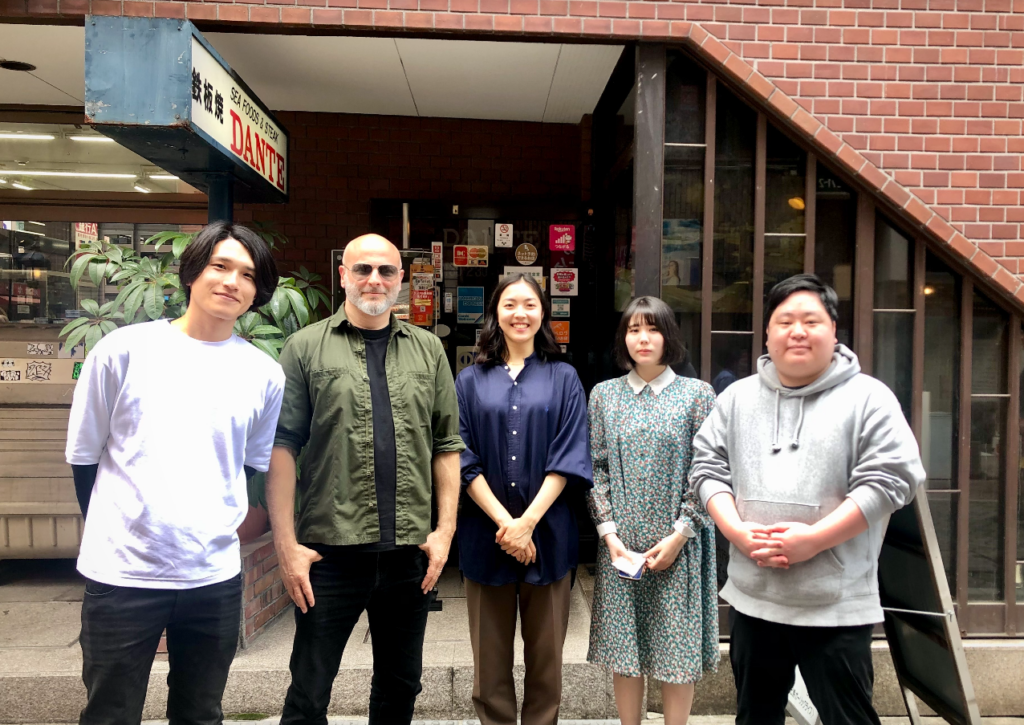
This trip was particularly busy because I spoke at not one but two events: our own FOUND Tokyo meetup and also at the wonderful Tokyo Digital Marketers meetup.
FOUND Tokyo Meetup
The theme for this month’s FOUND meetup was “Thinking about content.”
We were joined by three special guests:
Sunao Munakata-San, CEO of Innova, the original innovator behind the entire content marketing industry in Japan
Noriaki Ito-San, CEO of JADE, one of the top web consultancies in Japan
Mako Saito-San, of LIG, a leading authority in the content marketing space in Japan
Our three guests joined a panel and covered everything from content strategy to AI and the future of SEO / content marketing in Japan. It was a great panel discussion and they received many questions from the audience.
Takeru and I had a mini-panel at the beginning, where I shared some of the latest updates from the US market, as well as looked at some of the macro trends we are seeing in our industry.

I’ve shared my slides on Speakerdeck, and I’ll provide a bit of an overview here.
First, I wanted to address some of the trends that are converging in our industry.
Again, there is a macro level story that is affecting pretty much everything in the world right, including SEO, search in general, and Google very specifically.
The big story is the global anxiety about liquidity.
Ever since the US Federal Reserve began raising rates, money is not as cheap as it was during the so-called ZIRP (Zero Interest Rate Policy) era.
Periods of excessive fiat liquidity are characterized by many of the things that we saw during the years between 2008 to 2021, businesses receiving valuations far above their actual enterprise value being a key indicator of this sort of environment.
Since the raising of these rates, ostensibly to fight off (supply-side) inflation, we have seen the weird combination of some large companies failing spectacularly (client relationships prevent me from naming names here) to a weirdly strong stock market in the US continuing to grow.
But those at the top know that trouble is brewing and we are seeing this reflected at Google and their own anxieties about the cost of computation in coming years.
We discussed Google’s desire to reduce the “edge of indexing” and tied it back to, again, anxiety over liquidity and the disappearance of cheap money.

We also discussed Google’s HCU and spam updates vs. user behavior and how it is becoming very clear that Google does indeed rely on user metrics in their ranking systems.
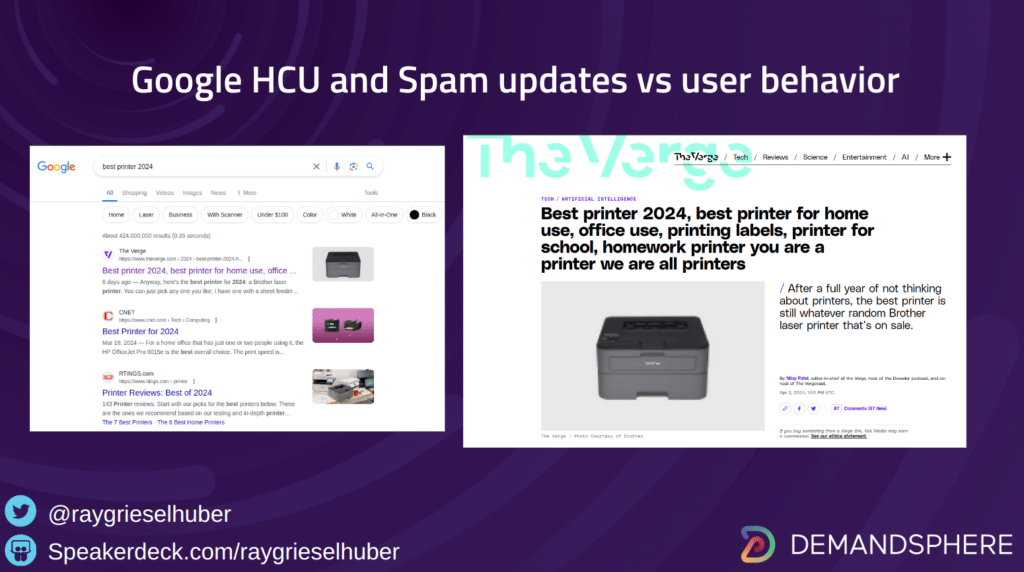
This, once again, highlights the need to treat SEO strategy as an extension of your corporate and product strategy.
We wrapped up the conversation by discussing the AI content arms race, and it is content teams vs. Google in this race, and those who stand the most to lose are normal internet users.
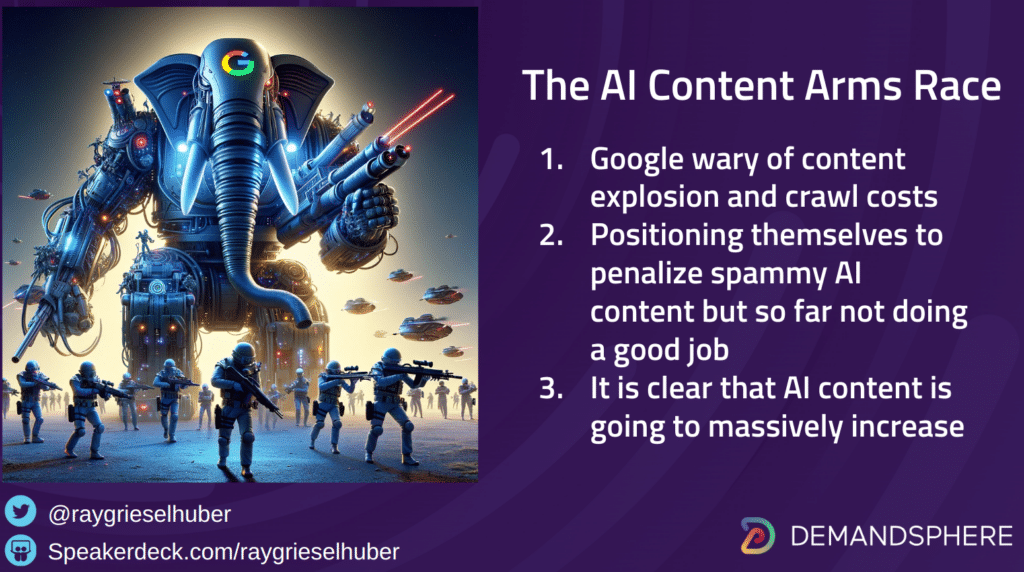
We are not against AI content, on the contrary, we have built tools such as ProseVector to support it.
But we are also adamant that AI-generated content must receive human editing and curation before publication and it should still be backed by the publisher’s own unique data and contributions.
The days of simply rewriting content and publishing spam may not quite be over but that end point is coming quickly.
No serious strategy should be based on that sort of outdated technique.
“How and why to use SERP data for more than just SEO”: Tokyo Digital Marketers Presentation
If you talk to me about our industry for more than 30 seconds, you’ll quickly realize that I am a passionate person when it comes to the value of SERP data and not just for SEO but for many areas related to performance marketing, product management, and corporate strategy.
This was the topic of my presentation to the excellent Tokyo Digital Marketers meetup on April 11th.
Since it was a mixed group of about 50% SEOs and the other half being more generalized digital marketers, I spent some time at the beginning outlining the basics of SEO strategy and how to use SERP data in this context.
Despite all the rage against Google it is still, by far, the largest source of traffic on the internet today.
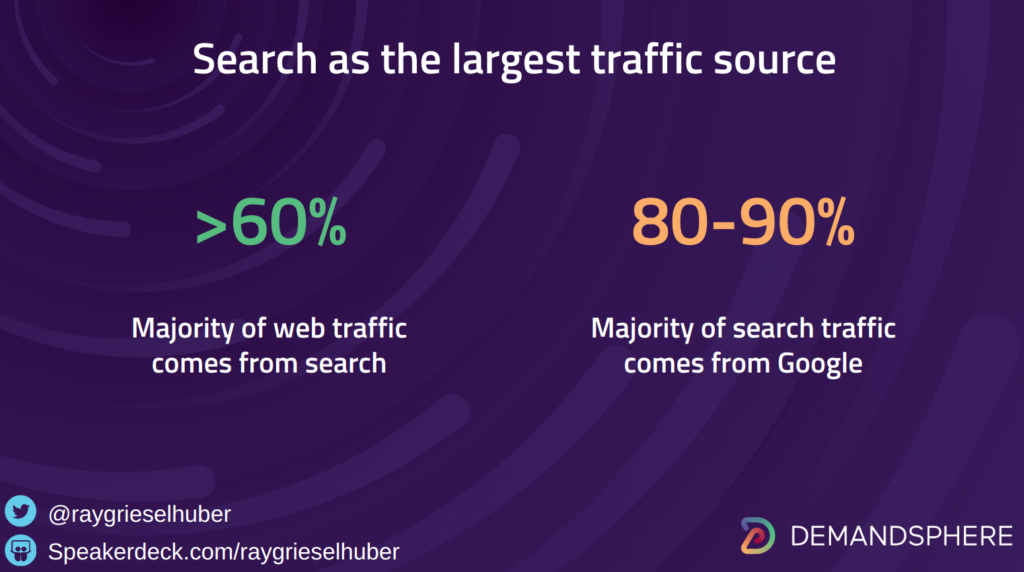
Furthermore, the size of the SEO market is exploding:
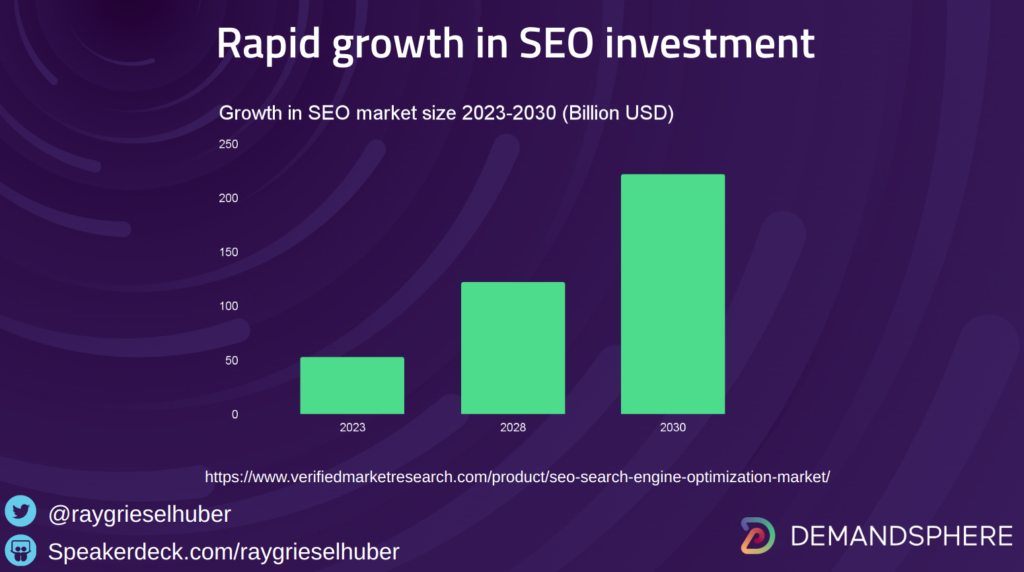
I then explained how SEO itself is more than just SEO and always has been.
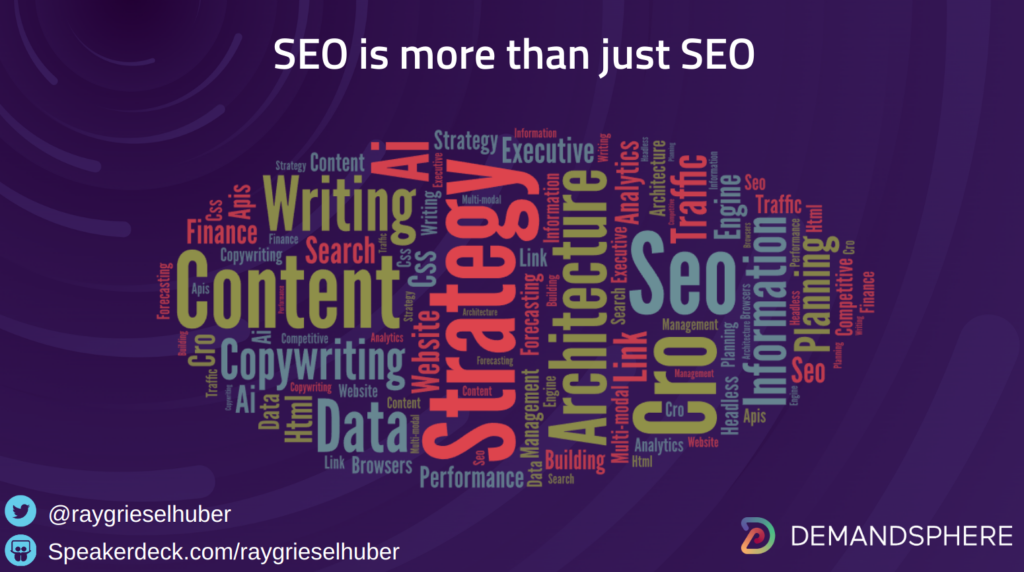
What to label what we all actually do is a common theme at any type of meetup in our crowd.
We all know that our responsibilities are so broadly defined if we want to be effective in our role, especially relative to other fields.
For me personally, internet strategist is about the best I can come up with but it suffers from the same semantic breadth and generality that our actual day-to-day roles suffer from as well.
I hadn’t made a word cloud since 2005 or so, but this seemed like a good opportunity to do so.
Throughout the presentation, I touched on some of the same themes that I did at my presentation for brightonSEO, with a bit of a different twist.
If you’re in Tokyo, we encourage you to join the Tokyo Digital Marketers group. It was my first time attending one of their events and I definitely plan to make it a regular stop for me in future trips to Tokyo.
We also host our FOUND Meetups whenever I’m in Tokyo, so be sure to check out our site and subscribe to our email list and social channels for announcements.
